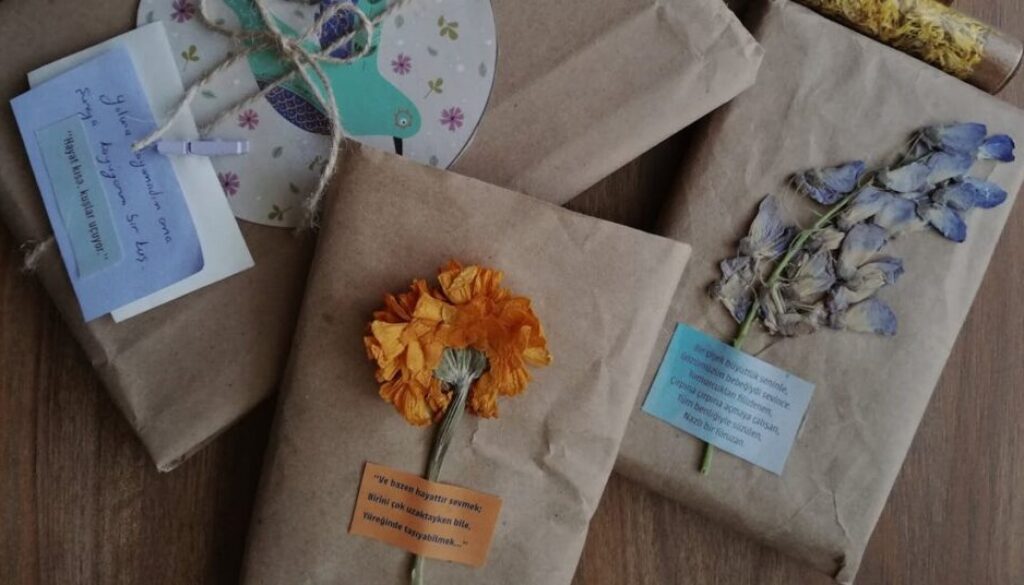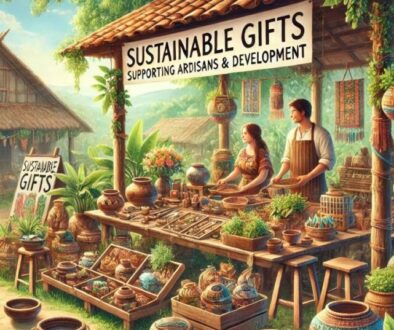The Impact of Cultural Tradition on Creating Sustainable and Ethical Handmade Gifts
Culture and tradition have long played a significant role in shaping the production and consumption of handmade gifts. In today’s consumer-driven society, where ethical and sustainable practices are gaining increasing importance, it is crucial to delve into how cultural traditions impact the creation of such gifts. This article aims to explore the intersection of culture, tradition, sustainability, and ethics in the realm of handmade gifts. By examining how cultural practices influence the materials used, design aesthetics, labor conditions, and overall ethos behind handmade gift production, we can gain a deeper understanding of how these factors contribute to creating truly sustainable and ethical products. Join us as we unravel the complex relationship between cultural heritage and responsible gift-giving practices in an increasingly globalized world.
The Influence of Cultural Materials and Resources
- Use of Eco-friendly Materials: Cultures around the world often prioritize sustainable practices in crafting their handmade gifts. By utilizing natural, eco-friendly materials such as bamboo, recycled textiles, or locally-sourced wood, artisans can create beautiful products that have a minimal impact on the environment.
- Traditional Artisan Techniques: Many cultures have passed down traditional artisan techniques through generations, ensuring the preservation of unique craftsmanship. These techniques often rely on hand tools and manual processes, limiting the use of energy-consuming machinery and reducing carbon footprints.
- Local Resources: Incorporating local resources into handmade gifts not only supports small communities but also reduces transportation emissions associated with sourcing materials from far away. By harnessing what is readily available in their surroundings, artisans can create sustainable products that showcase the beauty of their cultural heritage while promoting ethical production practices.
Traditional Design Aesthetics and Modern Sustainability
The fusion of traditional design aesthetics with modern sustainability principles creates a unique blend that honors cultural heritage while promoting environmental responsibility. Handmade gifts crafted through these practices not only showcase the beauty of age-old techniques but also highlight the importance of preserving our planet for future generations. By incorporating sustainable materials and ethical production methods into traditional designs, artisans can create meaningful gifts that resonate with both the giver and receiver.
Embracing traditional design aesthetics in handmade gifts allows individuals to connect with their roots and appreciate the timeless artistry passed down through generations. Pairing these elements with modern sustainability practices reinforces the idea that creativity can thrive without compromising our environment. With each sustainable gift purchased, we support artisans who uphold traditions while making conscious choices that benefit our world.
Labor Practices in Handmade Gift Production
- Fair Wages: It is vital to ensure that artisans are paid fairly for their work in handmade gift production. Fair wages contribute to the economic stability and well-being of the artisans and their communities.
- Safe Working Conditions: Artisans should have access to safe working environments while creating handmade gifts. This includes proper ventilation, lighting, and tools to ensure their health and safety.
- No Child Labor: Ethical handmade gift production prohibits the use of child labor. It is essential to prioritize the well-being and education of children by ensuring they are not exploited in any way for crafting these gifts.
Preservation of Traditional Crafts and Artisan Techniques
- Safeguarding cultural heritage: By supporting handmade gifts created using traditional crafts and artisan techniques, we are preserving cultural traditions that have been passed down through generations. These unique skills are at risk of being lost in today’s fast-paced, mass-produced world.
- Promoting sustainable practices: Handmade gifts made with traditional crafts often use natural and sustainable materials, reducing the environmental impact compared to factory-made products. Artisans who rely on these techniques also tend to practice ethical sourcing and fair labor standards.
- Celebrating individuality and creativity: Each handmade gift crafted using traditional techniques is a one-of-a-kind piece that showcases the skill and creativity of the artisan. This helps celebrate diversity and uniqueness in a world where uniformity dominates mass production.
By choosing to support traditional crafts and artisan techniques when selecting handmade gifts, we contribute to the preservation of cultural heritage, promote sustainability, and celebrate individual craftsmanship—making our gift-giving not just an exchange but a meaningful connection to our shared human history.
Community Impact and Social Responsibility
Community Impact
Handmade gifts created through cultural tradition have a positive impact on local communities. By supporting artisans and craftsmen, these gifts contribute to preserving age-old traditions and skills passed down through generations. This helps in sustaining the cultural identity of communities and ensuring that their unique heritage is not lost over time.
Social Responsibility
Choosing handmade gifts made through ethical practices demonstrates a commitment to social responsibility. These gifts often support fair trade principles, providing artisans with fair wages and safe working conditions. By purchasing ethically-made products, consumers can make a conscious choice to support sustainable practices and promote economic empowerment within communities around the world.
Future Trends in Culturally Sustainable Handmade Gifts
- Embracing Traditional Techniques: As we look towards the future, there is a growing interest in preserving and revitalizing traditional crafting techniques. By incorporating these methods into handmade gifts, artisans can create unique pieces that honor their cultural heritage while promoting sustainability.
- Fusion of Cultural Influences: Another trend on the horizon is the fusion of different cultural influences to create innovative handmade gifts. This blending of traditions not only results in one-of-a-kind products but also fosters cross-cultural understanding and appreciation.
- Eco-Friendly Materials: In line with the global shift towards sustainability, using eco-friendly materials in handmade gifts will continue to be a prominent trend. From recycled textiles to natural dyes, incorporating environmentally conscious elements into culturally sustainable creations is key for shaping the future of ethical gifting practices.










